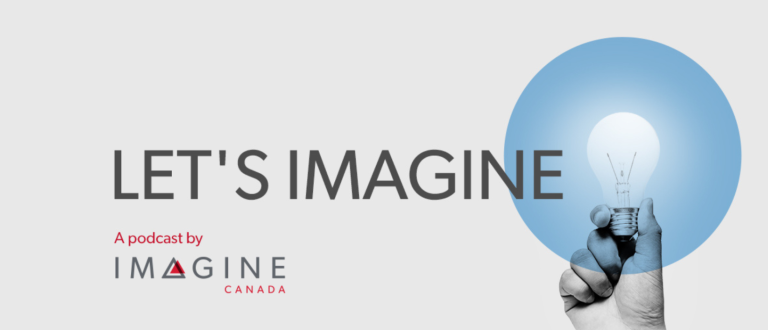On April 28, Canadians will head to the polls and we want to ensure that the thousands of nonprofit sector voters understand where the major political parties stand on key sector priorities.
In the early days of the election, we sent the five major federal parties the same questions and asked them to go on the record with their responses. Below, you’ll find the full verbatim responses from the Liberals, NDP, Block and Greens. Unfortunately, the Conservatives chose not to respond by the deadline.
What steps would your government take to support the nonprofit and charitable sector so that it can continue to deliver essential services and make communities safer, stronger and healthier during your first term?
New Democratic Party (NDP): “We would enhance core funding, improve access to grants, and ensure long-term stability for nonprofit groups to support their vital services.”
Bloc Québecois (BQ): “Federal policies are woefully ill-suited to the needs of nonprofits. In particular, economic development programs are designed for private companies rather than social enterprises (requirement for capital outlays, guarantees or private partners; tax support that is often inaccessible to nonprofits; etc.). The federal system makes no room for the social economy and its actors. We would like to see this system revised to include cooperatives and nonprofits.”
Green Party of Canada (GPC): “Greens believe a strong nonprofit sector is essential to community well-being. We would work to secure long-term, stable core funding for nonprofits so they can plan ahead, retain staff, and deliver vital services. We support reforming federal procurement rules to give nonprofits and co-ops fair access to government contracts and purchasing.
The Green Party would invest in community infrastructure, including nonprofit-owned spaces for housing, care, food security, and the arts. We would prioritize support for Indigenous-led organizations, equity-seeking groups, and those serving rural and remote communities.
We also support greater inclusion of nonprofit voices in policy development and data collection, so that decisions reflect on-the-ground realities. By recognizing the sector as a key economic and social force, we can build a healthier, more resilient Canada—together.”
Liberal Party of Canada (LPC): “Canadian charities and nonprofits play a critical role in helping Canadian communities thrive—they drive high-priority efforts ranging from food security to housing, education, and local journalism. The social services they provide are indispensable.
A Mark Carney-led government will work with all sectors of society, including charities and the nonprofit sector to build strong communities and an economy that works for everyone. Our government will work in partnership with the sector to support Policymaking.”
If elected, will your government commit to meeting with representatives of the charitable and nonprofit sector within the first 100 days of the new federal government?
NDP: “Yes.”
BQ:“The Bloc Québécois won’t form the government, but we would support such a meeting between the next government and representatives of the nonprofit sector. Additionally, the Bloc will invite representatives from nonprofits and cooperatives to appear as witnesses before committee.”
GPC: “Yes. The Green Party is committed to meeting with nonprofit and charitable sector leaders within the first 100 days of a new Parliament. We believe the sector’s expertise is essential to making good public policy. Greens want to hear directly from organizations—large and small, urban and rural, Indigenous-led, youth-led, and equity-focused—about what’s working, what’s not, and where federal support is most needed.
This early meeting would help shape priorities, improve access to funding, and build lasting partnerships that reflect the needs of communities across Canada. We know that many of our shared goals—from ending poverty to improving public health—depend on the capacity and insight of this sector. Starting the conversation early ensures we can act quickly and collaboratively.”
LPC: “Yes. A re-elected Liberal government will meet with representatives from the charitable and nonprofit sector within the first 100 days. We value the work you do and know that strong partnerships with the sector are essential to building a fairer, more inclusive Canada.”
How would your government work with nonprofits to create a champion for our sector within the federal government?
BQ: “The Bloc Québécois won’t form the next government, but we are open to analysing the relevance of such a measure. We would like to see a study of how to integrate nonprofits into federal programs.”
GPC: “Greens support the creation of a dedicated voice for the nonprofit and charitable sector within the federal government—whether through a ministerial portfolio, a secretariat, or a permanent advisory council co-led by sector representatives. This champion would ensure the sector’s priorities are reflected in federal policy and funding decisions.
We support fair, transparent access to decision-makers for all nonprofits—not just those with the loudest lobbyists. We would end backroom access for private interests and ensure public interest voices are heard. We also support modernizing Canada’s outdated charitable rules to protect advocacy rights and ensure nonprofits can speak up without risking their status.
Greens also support social procurement and inclusive advisory bodies where nonprofits can help shape policy from the ground up. Stronger collaboration means stronger communities.”
LPC: “In 2019, the previous Liberal government established the Advisory Committee on the Charitable Sector (ACCS), a consultative forum in which the federal government engages in dialogue with the charitable and nonprofit sector. The body is intended to serve as a champion for the nonprofit sector within the government, ensuring that emerging issues related to charities get appropriate attention.
A Mark Carney Liberal government would build off this work and collaboratively work with the nonprofit sector – including by considering suggestions for reforms to the committee’s structure and function.”
NDP: “We would work directly with sector partners to establish a permanent role within government dedicated to representing the interests of nonprofits and charities, ensuring their voices are heard in policymaking and funding decisions.”
Would your government improve the availability of reliable and comprehensive data about the nonprofit sector by conducting a national survey of nonprofits annually?
GPC: “Greens believe good data leads to better decisions. We support evidence-based policy and recognize that the nonprofit sector is too often left out of national data collection. We are open to an annual national survey of nonprofits and would work with the sector and Statistics Canada to determine the best approach.
We want to ensure that federal data reflects the full scope of the sector’s contributions, challenges, and needs—including for smaller, rural, and equity-focused organizations. If a yearly survey is the most effective way to collect that data, we would support it. Reliable information is essential to shaping fair, effective policies that reflect real community needs.”
LPC: “Over the past nine years, the previous Liberal government has taken steps to enhance data collection on the nonprofit sector. In 2021, the government established the Disaggregated Data Action Plan, and provided Statistics Canada $172 million to track data on segments of society, such as the nonprofit sector, that were not prominent in government data sets. With that funding, in 2023, Statistics Canada conducted the National Insights into Non-profit Organizations, Canadian Survey on Business Conditions. The data from the survey was published the following year. This initiative marked the first large-scale data collection effort since 2003, addressing long-standing data gaps within the sector.
A new government led by Mark Carney would build on this momentum, working to improve data collection on the nonprofit sector, including by exploring the feasibility of a national annual survey. Better data helps ensure informed policy decisions and supports the sector’s ability to serve communities effectively.”
NDP: “Yes, we recognize the importance of quality data. We would work with Statistics Canada and sector partners to support an annual national survey that captures the scope, needs, and impact of the nonprofit sector to guide evidence-based decision-making.”
BQ: “We would be open to analysing such a measure. As with all of the changes proposed by the Bloc, we would wait until the government does an annual review.”
Would your government commit to making federal funding for nonprofits more effective and impactful by developing an appendix for the Directive on Transfer Payments that recognizes the unique role and operating models of nonprofit recipients in order to reduce red tape and better serve communities?
LPC: “A new government led by Mark Carney would work collaboratively with the nonprofit sector to help make federal funding for nonprofits more effective and impactful. We recognize the unique role and operating models of nonprofit organizations, and will work with the sector to ensure the processes we have in place reflect those realities.”
NDP: “Yes, we would consult the sector to develop an appendix that reflects the specific ways nonprofits operate—simplifying reporting requirements, allowing more flexible funding use, and ensuring application processes are accessible and fair, especially for smaller organizations.”
BQ: “The Bloc Québécois has always been sensitive to the need to reduce red tape. We are open to analyzing this measure.”
GPC: “Yes. Greens support changes to the Directive on Transfer Payments to better reflect the realities of nonprofit recipients. While this specific appendix isn’t in our platform, we fully support its goal: reducing red tape, improving access, and recognizing the nonprofit sector’s unique operating models.
We would work with the sector to co-develop improvements that make federal funding more accessible, stable, and responsive to real community needs. This includes shifting toward multi-year, flexible funding for organizations delivering essential public services.
Greens believe public funds should support those working for the public good—and that means updating outdated funding rules so nonprofits can focus on the essential work that they do.”
Photo credit: Elections Canada


